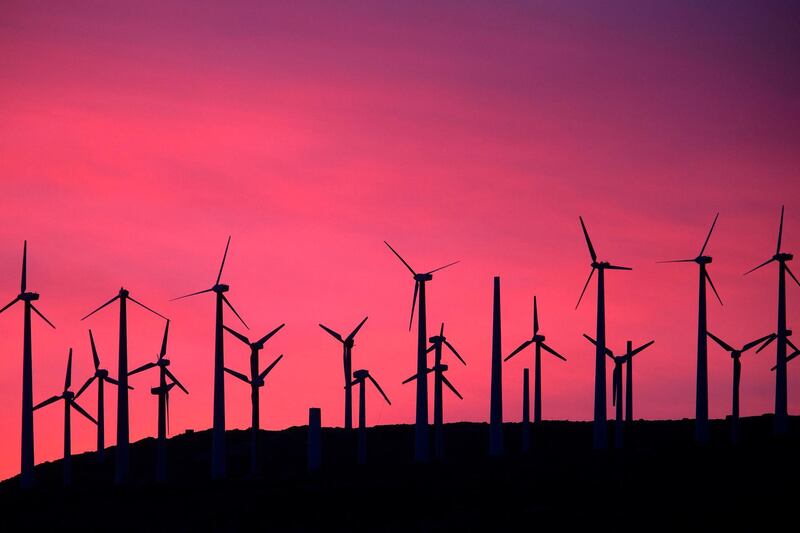Fewer than a third of people working in renewable energy worldwide are women but most men in the sector do not believe female co-workers face career barriers because of their gender.
A new report, unveiled at the Irena General Assembly in Abu Dhabi on Saturday, has warned that clean energy companies are missing out on talent because of a gender imbalance in the industry, with only 32 per cent of renewables workers women. A lack of women earning science-based qualifications, as well as demands to travel long distances which can present challenges to mothers, are factors likely to be fuelling the imbalance.
However, a majority of men do not think women in renewable energy experience disadvantages because of their gender.
Around 1,500 individuals and organisations working in the renewable energy sector worldwide were polled. Of men employees responding to the survey, 60 per cent did not believe female co-workers, or women trying to enter the industry, “face gender-related barriers”. Meanwhile, 75 per cent of women said they did face barriers because of their sex.
The trend was also reflected in responses to a question about a gender pay gap. Some 60 per cent of men believed men and women in the industry are paid equally. However, 71 per cent of women in renewable energy said they believed men earned more than women.
While there is more equality in renewables than conventional energy such as oil and gas, where only 21 per cent of workers are women, it was warned that far more needs to be done to make it easier for women to enter renewables. Possible policies include improved training schemes, women-only mentoring initiatives and the introduction of quotas which would demand a fairer gender split, particularly in top jobs.
“Accelerating the deployment of renewables can alleviate poverty, create jobs, improve welfare and strengthen gender equality,” said Adnan Amin, the director general the International Renewable Energy Agency, which published the report.
“Still, to fully realise this potential, the renewables industry has to tap a wider pool of talent — notably that of women, who have been largely underrepresented, depriving the energy transition of critical capacities.
“The study finds that women represent 32 per cent of the renewable energy workforce. This compares favourably to the broader, conventional energy sector. Still significant imbalances remain, both in highly developed markets and in communities where renewables are only now extending energy access.
“The renewable energy industry needs to engage and retain more women — and promote them — to fill its growing needs for skills. Their leadership and contributions will be crucial to ensuring that the energy systems of the future address the needs of modern societies and leave no one behind.”
_________________
Read more:
UAE's commitment to renewable energy can enhance its global leadership role
Ras Al Khaimah set to add 20 per cent renewables to energy mix
Total eyes UAE licensing rounds and regional renewables projects
_________________
The report noted that women are generally “primary energy users” in households, making it more important that they participate in the industry.
“Across the globe, the findings confirm, women are increasingly attracted to renewables,” Rabia Ferroukhi, acting director for knowledge, policy and finance at Irena, said. “This multidisciplinary sector employs a larger share of women compared to the conventional energy field. But like in other fields of work, women still encounter numerous obstacles, from the lack of equal access to education, training, mentoring, professional networks and finance, to the glass-ceiling in companies or institutions.
“When I first began my career in the energy sector, very few of my fellow researchers or analysts were women. At the time, this seemed to be the norm in energy-related jobs. Some two decades later, this pattern has started to change, in part thanks to the emergence of renewables and the more holistic, democratised energy future they represent. If the global energy transformation is to drive sustainable growth and development, it needs to be inclusive in every sense. And women have to be part of it.”






